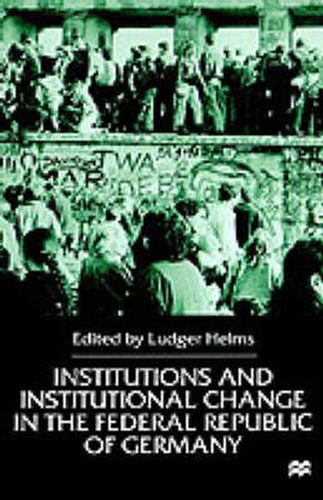Readings Newsletter
Become a Readings Member to make your shopping experience even easier.
Sign in or sign up for free!
You’re not far away from qualifying for FREE standard shipping within Australia
You’ve qualified for FREE standard shipping within Australia
The cart is loading…






This title is printed to order. This book may have been self-published. If so, we cannot guarantee the quality of the content. In the main most books will have gone through the editing process however some may not. We therefore suggest that you be aware of this before ordering this book. If in doubt check either the author or publisher’s details as we are unable to accept any returns unless they are faulty. Please contact us if you have any questions.
After an extended period of major political upheaval and remarkably low regime stability before the Second World War, Germany has become one of the most stable democracies in western Europe. A great deal of this success has traditionally been put down to the Federal Republic’s specific brand of political institutions. More recently, however, the same institutions have been criticized for their marked propensity to produce gridlock and political immobility. How much change and adaptation has there been behind the widespread perception of the ‘eternal stability’ of the Federal Republic’s institutional system? What effect have German unification and European integration had on the performance of the core political institutions, and how well prepared is the German polity to face the challenges of the twenty-first century? The views of nine distinguished German scholars are assembled in this volume, and they offer their assessments of the German political core institutions from a broad historical perspective.
$9.00 standard shipping within Australia
FREE standard shipping within Australia for orders over $100.00
Express & International shipping calculated at checkout
This title is printed to order. This book may have been self-published. If so, we cannot guarantee the quality of the content. In the main most books will have gone through the editing process however some may not. We therefore suggest that you be aware of this before ordering this book. If in doubt check either the author or publisher’s details as we are unable to accept any returns unless they are faulty. Please contact us if you have any questions.
After an extended period of major political upheaval and remarkably low regime stability before the Second World War, Germany has become one of the most stable democracies in western Europe. A great deal of this success has traditionally been put down to the Federal Republic’s specific brand of political institutions. More recently, however, the same institutions have been criticized for their marked propensity to produce gridlock and political immobility. How much change and adaptation has there been behind the widespread perception of the ‘eternal stability’ of the Federal Republic’s institutional system? What effect have German unification and European integration had on the performance of the core political institutions, and how well prepared is the German polity to face the challenges of the twenty-first century? The views of nine distinguished German scholars are assembled in this volume, and they offer their assessments of the German political core institutions from a broad historical perspective.